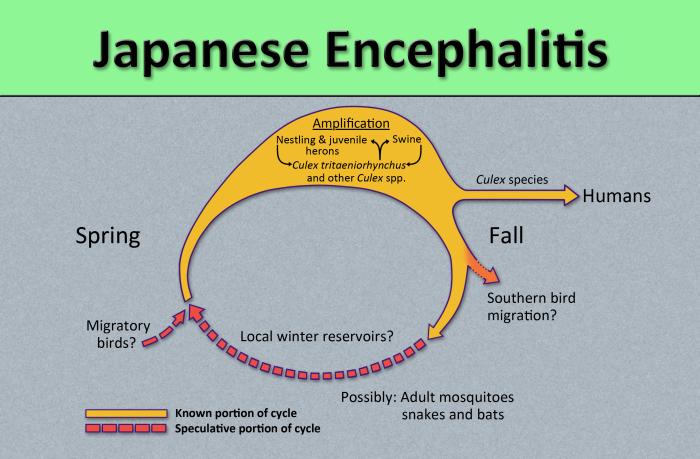The Taiwan Centers for Disease Control (CDC) has reported an additional two cases of local transmission of the mosquito borne virus, Japanese encephalitis in the southern region of the island.

According to the epidemiological investigation, the cases, a 42-year-old and a 58-year-old male, had not recently traveled overseas, but there are pig farms, pigeon farms and rice paddy fields within 2 km of the cases’ residences. Hence, it is determined that the source of infection is somewhere around the case’s residence.
On June 4, the 42-year-old case sought medical attention after developing sore throat and mild cough. On the following day, his symptoms improved. However, on June 6, he developed lethargy. In the early morning of June 7, when he developed fever and unconsciousness, he was transferred to the intensive care unit.
On the other hand, the 58-year-old case developed runny nose on June 6. In the evening of the next day, he developed fever. In the afternoon and evening of June 8, he sought medical attention at a clinic and a hospital. On June 9, when his fever persisted and he developed unconsciousness, he was hospitalized in the intensive care unit. Both cases were reported to the health authority by their hospital as a suspected Japanese encephalitis case. Infection with Japanese encephalitis was later confirmed in both cases. As of now, both cases are still hospitalized.
According to Taiwan CDC’s surveillance data, thus far this year, as of June 18, a total of three Japanese encephalitis cases have been confirmed and all of them occurred in southern Taiwan.
Japanese encephalitis (JE) virus is the leading cause of vaccine-preventable encephalitis in Asia and the western Pacific. It is a viral disease transmitted by Culicine mosquitoes.
Most human infections are asymptomatic or result in only mild symptoms. However, a small percentageofinfected persons develop inflammation of the brain (encephalitis), with symptoms including sudden onset of headache, high fever, disorientation, coma, tremors and convulsions.
About 1 in 4 cases are fatal. There is no specific treatment for JE. Patient management focuses on supportive care and management of complications. Steps to prevent JE include using personal protective measures to prevent mosquito bites and vaccination.

